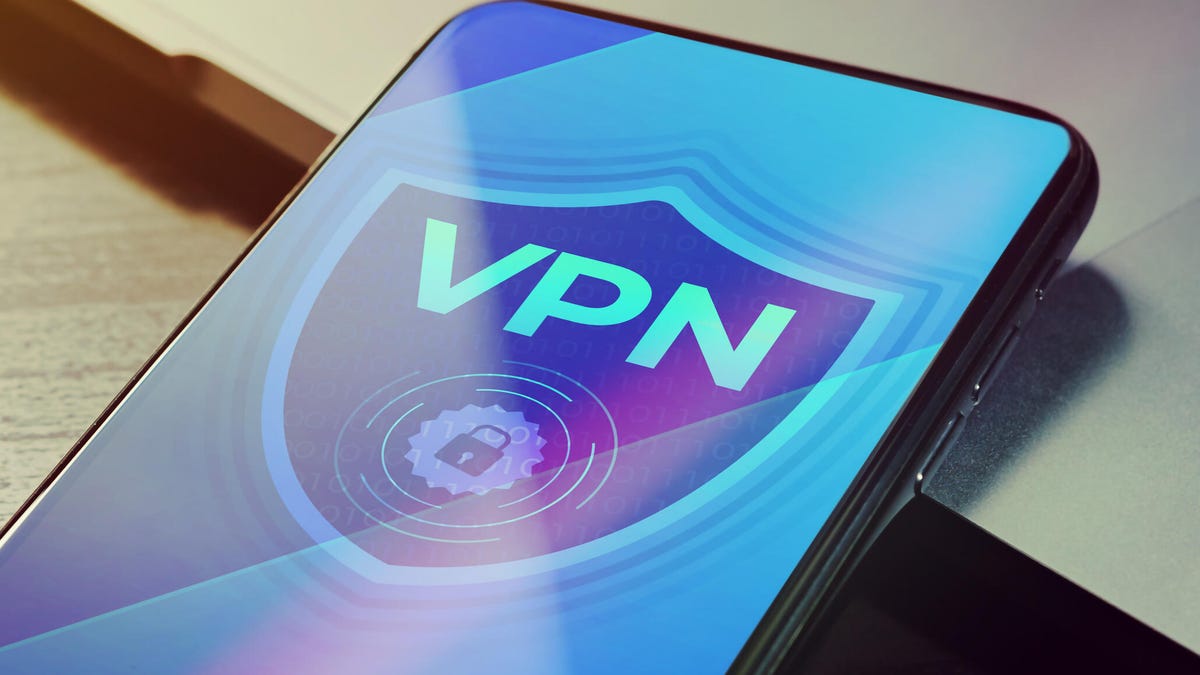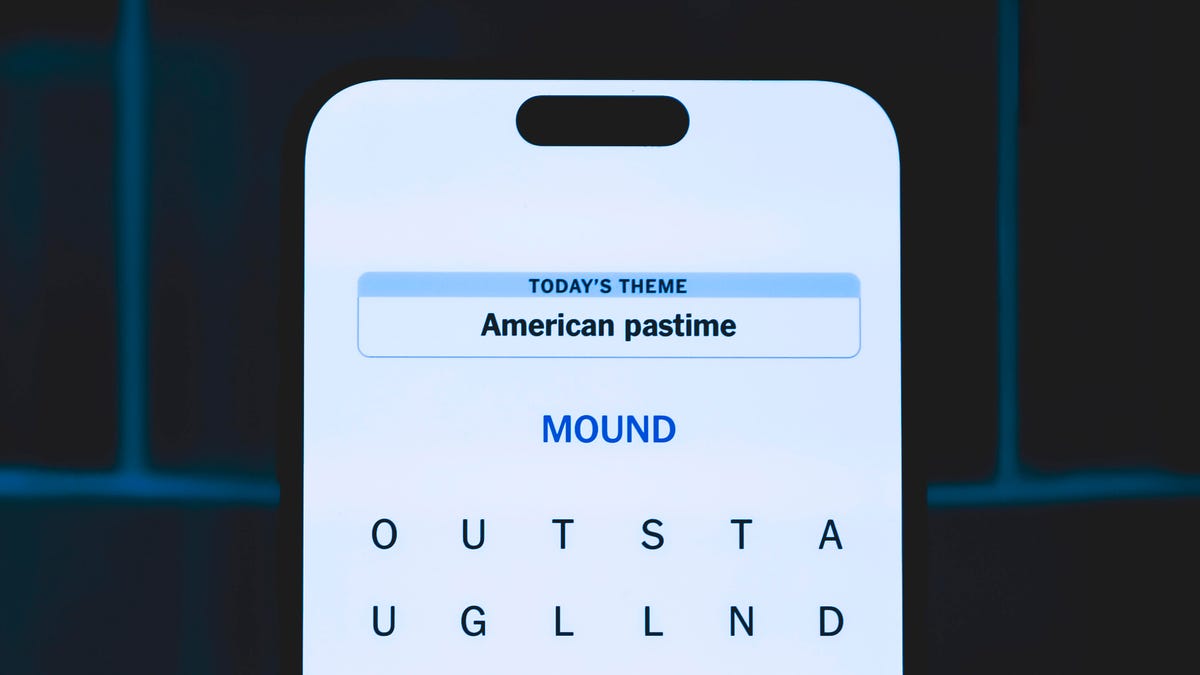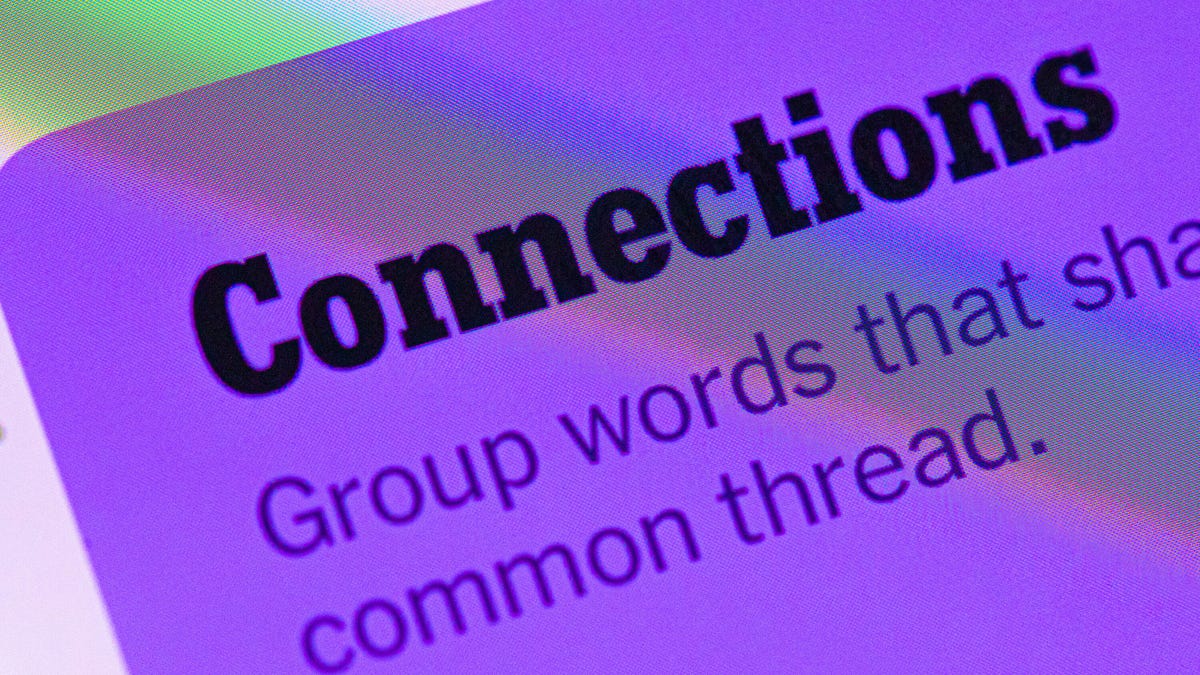Technologies
CNET Survey: 78% of US Shoppers Are Stressing Out Over Back-to-School Tech Purchases
Nearly half are worried about finding quality purchases at an affordable price — adding another strain to school shopping this year.

Back-to-school shopping is underway, and the supply list isn’t like it was when I was a kid.
More schools and colleges are leaning on technology for educational purposes, and some of those costs could fall on US shoppers. Big-ticket purchases, like laptops and tablets, can be a strain on your finances, especially when juggling other back-to-school items and everyday expenses.
CNET’s new back-to-school survey dives into just how much US shoppers are concerned about making tech purchases ahead of the school year starting back. One point is clear: 78% of back-to-school shoppers are worried about affording tech purchases.
Between tight budgets, potential tariff price hikes and the possibility of shortages, buying a new laptop or tablet can be stressful, to say the least. Here are the survey findings and what CNET tech experts recommend when shopping for back-to-school supplies.
Back-to-school shopping is taking a toll on finances
The average US shopper will spend $328.68 on back-to-school shopping. Even though that’s less than last year, it still may be a lot to cover with tighter budgets and higher prices on some supplies compared to last year.
Nearly 1 in 3 are worried about affording tech purchases
Affording tech purchases is one of US shoppers’ top concerns this back-to-school season.
That could be for a few reasons, including tighter budgets and higher-than-expected prices on tech gadgets. Josh Goldman, managing editor and laptop reviewer at CNET, recommends comparison shopping by starting with the everyday price, then looking for sales at your favorite stores and manufacturers. Especially if you’re looking for a computer.
«HP, Dell, Lenovo and others frequently have the best deals and also offer student discounts. You might want to actually give them a call, too, tell them your situation and see what’s possible,» said Goldman.
Goldman and other CNET experts also recommend buying used, refurbished tech from reputable places. Before you buy, see if there’s a rating system to help understand the device’s condition. And check for any return policies and warranties in case you’re not satisfied.
Lastly, Goldman recommends checking with family and friends who may have aging devices that can save you money on a new one. «While it might not meet their needs anymore, it could be just enough for a student,» said Goldman. «Also, if it’s a bit too old even for your student, there’s a chance it can be traded in for a discount on an upgrade.»
Close to 1 in 4 are concerned about unexpected tech fees, too
Beyond buying the hardware, 23% of shoppers are concerned about additional tech fees and subscription costs.
Some learning management systems are free or included in the course, while other apps and services with upgraded features can add up. For example, some educational app subscriptions, maintenance fees and even e-book rentals are required but cost.
To trim that cost, some schools offer special codes or discounts to lower how much you’ll pay. I also recommend checking online student forums for students in higher grades who have completed the course but still have access and for any unused offer codes.
1 in 5 are concerned about managing expenses without credit or BNPL
CNET found that 1 in 5 (20%) are concerned about managing expenses when using credit or Buy Now, Pay Later to afford tech. Yet, juggling expenses and debt can be detrimental to your finances and can lead to interest and fees if you’re unable to pay the statement balance in full and on time.
If you need to lean on financing to cover back-to-school costs, try setting aside any amount you can to help finance less of your school supply list. You may also look for deals to pay less than the sticker price and save money, or hold off on a few purchases for now.
If you have to make a big tech purchase right now, try to cut or hold off on other back-to-school items for now. For example, holding off on shopping for new clothes or reusing some supplies from last year can help cut costs for now.
Back-to-school shoppers are concerned about tech purchases
Gone are the days of only needing pencils, pens and paper. More schools are using technology for educational purposes. Now, there’s a need for laptops, tablets and headphones. And the price tag of these big-ticket items is a concern for shoppers. Here’s a closer look at shoppers’ top concerns.
Nearly half of shoppers are worried about tariffs and rising prices
Which products will be impacted by tariffs has been a hot topic for months now. Earlier this summer, CNET found that 64% of shoppers are rushing to buy tech to dodge price spikes and shortages. It’s a fair concern considering some tech companies, including Microsoft and Acer, have stated that tariffs will push prices on tech higher.
By the numbers, nearly half of back-to-school shoppers (46%) are concerned about rising prices and tariffs. We haven’t seen the impact yet due to the reciprocal tariff agreement pause, and tariffs don’t change prices for items in stock overnight.
But if more tariffs go into effect, price hikes are likely at some point. Therefore, if you know you’ll need a laptop for the upcoming school year and you’re worried about costs going up, Goldman recommends buying one sooner rather than later if you can. On the other hand, if you can wait until holiday sales in the fall, you still may be able to score a good deal depending on the impact of tariffs and US product availability, Goldman added.
Half of shoppers are worried about finding quality, affordable tech
Besides being able to afford tech, half of shoppers are concerned about finding quality technology at an affordable price. Buying the lowest-priced laptop or tablet may not be worthwhile if you’ll pay more in repairs. That’s another reason why our experts recommend shopping for high-quality second-hand tech.
«Woot.com is a good place to find reconditioned laptops and school tech,» said James Bricknell, CNET’s senior shopping editor. «You don’t always need brand-new tech for school, as the latest processor and graphics card aren’t really needed for the average school classroom.»
Our editors also recommend the Amazon Renewed Store, Apple Certified Refurbished and eBay Refurbished as a few trusted retailers for secondhand tech.
Other ways to save on back-to-school tech this year
Here are a few other ways CNET experts say you can save money on must-have tech this back-to-school season.
Shop deals and sales
Some states have tax-free weekends to help you save money by excluding tax on select items for a few days. Coupling this weekend with sales and deals can help you save money on your shopping list.
Bricknell pointed out that even though big sale events, like Prime Day, are great times to get deals on tech before school starts, you may be able to score savings around Black Friday if you’re able to wait until later this year.
Track prices
CNET’s experts are still tracking plenty of tech deals to scout out the real savings based on their recommendations, but no matter how sweet the savings may seem, CNET senior editor and computer expert, Matt Elliott, recommends being patient and tracking prices.
«Be patient and track the price of a product and then do what stock traders do and ‘buy the dip.’ Online retailers are constantly rotating discounts, so it pays to wait for a sale price to land on the product you are looking to buy,» said Elliott.
Elliott added that you’ll see the price fluctuate over a few weeks, so you’ll get a sense of when to buy quickly. Some websites and browser extensions can help you track prices, too — like Keepa and CamelCamelCamel.
There may be other options if a tech must-have isn’t within your budget. Bricknell recommends checking with your school for programs to still get what you need at a fraction of the cost or for free, in some circumstances. For example, some schools may loan laptops for a school year or semester, but eligibility requirements may apply.
Trade in old devices
If you have old tech that you’re no longer using, it may be worth some money that you can use to buy a laptop or tablet you need now.
«Companies like Swappa can give you cash for your old tech, but keep in mind that the more used your tech, the less cash you’re likely to get,» said Bricknell.
Before you sell your old devices, check several retailers to make sure you’re getting the best deal before selling. How much you get back can depend on the condition of your device, how old it is and the demand for it.
Methodology
CNET commissioned YouGov Plc to conduct the survey. All figures, unless otherwise stated, are from YouGov Plc. Total sample size was 2,601 adults, of whom 689 have gone or are planning to go back-to-school shopping. Fieldwork was undertaken July 16 to 18, 2025. The survey was carried out online. The figures have been weighted and are representative of all US adults (aged 18-plus).
Technologies
Wisconsin Reverses Decision to Ban VPNs in Age-Verification Bill
The law would have required websites to block VPN users from accessing «harmful material.»

Following a wave of criticism, Wisconsin lawmakers have decided not to include a ban on VPN services in their age-verification law, making its way through the state legislature.
Wisconsin Senate Bill 130 (and its sister Assembly Bill 105), introduced in March 2025, aims to prohibit businesses from «publishing or distributing material harmful to minors» unless there is a reasonable «method to verify the age of individuals attempting to access the website.»
One provision would have required businesses to bar people from accessing their sites via «a virtual private network system or virtual private network provider.»
A VPN lets you access the internet via an encrypted connection, enabling you to bypass firewalls and unblock geographically restricted websites and streaming content. While using a VPN, your IP address and physical location are masked, and your internet service provider doesn’t know which websites you visit.
Wisconsin state Sen. Van Wanggaard moved to delete that provision in the legislation, thereby releasing VPNs from any liability. The state assembly agreed to remove the VPN ban, and the bill now awaits Wisconsin Governor Tony Evers’s signature.
Rindala Alajaji, associate director of state affairs at the digital freedom nonprofit Electronic Frontier Foundation, says Wisconsin’s U-turn is «great news.»
«This shows the power of public advocacy and pushback,» Alajaji says. «Politicians heard the VPN users who shared their worries and fears, and the experts who explained how the ban wouldn’t work.»
Earlier this week, the EFF had written an open letter arguing that the draft laws did not «meaningfully advance the goal of keeping young people safe online.» The EFF said that blocking VPNs would harm many groups that rely on that software for private and secure internet connections, including «businesses, universities, journalists and ordinary citizens,» and that «many law enforcement professionals, veterans and small business owners rely on VPNs to safely use the internet.»
More from CNET: Best VPN Service for 2026: VPNs Tested by Our Experts
VPNs can also help you get around age-verification laws — for instance, if you live in a state or country that requires age verification to access certain material, you can use a VPN to make it look like you live elsewhere, thereby gaining access to that material. As age-restriction laws increase around the US, VPN use has also increased. However, many people are using free VPNs, which are fertile ground for cybercriminals.
In its letter to Wisconsin lawmakers prior to the reversal, the EFF argued that it is «unworkable» to require websites to block VPN users from accessing adult content. The EFF said such sites cannot «reliably determine» where a VPN customer lives — it could be any US state or even other countries.
«As a result, covered websites would face an impossible choice: either block all VPN users everywhere, disrupting access for millions of people nationwide, or cease offering services in Wisconsin altogether,» the EFF wrote.
Wisconsin is not the only state to consider VPN bans to prevent access to adult material. Last year, Michigan introduced the Anticorruption of Public Morals Act, which would ban all use of VPNs. If passed, it would force ISPs to detect and block VPN usage and also ban the sale of VPNs in the state. Fines could reach $500,000.
Technologies
Today’s NYT Strands Hints, Answers and Help for Feb. 21 #720
Here are hints and answers for the NYT Strands puzzle for Feb. 21, No. 720.

Looking for the most recent Strands answer? Click here for our daily Strands hints, as well as our daily answers and hints for The New York Times Mini Crossword, Wordle, Connections and Connections: Sports Edition puzzles.
Today’s NYT Strands puzzle might be easy for those who pursue a certain hobby. Some of the answers are difficult to unscramble, so if you need hints and answers, read on.
I go into depth about the rules for Strands in this story.
If you’re looking for today’s Wordle, Connections and Mini Crossword answers, you can visit CNET’s NYT puzzle hints page.
Read more: NYT Connections Turns 1: These Are the 5 Toughest Puzzles So Far
Hint for today’s Strands puzzle
Today’s Strands theme is: The beer necessities.
If that doesn’t help you, here’s a clue: Cheers!
Clue words to unlock in-game hints
Your goal is to find hidden words that fit the puzzle’s theme. If you’re stuck, find any words you can. Every time you find three words of four letters or more, Strands will reveal one of the theme words. These are the words I used to get those hints but any words of four or more letters that you find will work:
- MALE, TREAT, STEAM, TEAM, MOVE, LOVE, ROVE, ROVER, SPEAR, PEAR
Answers for today’s Strands puzzle
These are the answers that tie into the theme. The goal of the puzzle is to find them all, including the spangram, a theme word that reaches from one side of the puzzle to the other. When you have all of them (I originally thought there were always eight but learned that the number can vary), every letter on the board will be used. Here are the nonspangram answers:
- HOPS, WATER, MALT, YEAST, BARLEY, SUGAR, WHEAT, FLAVOR
Today’s Strands spangram
Today’s Strands spangram is HOMEBREW. To find it, start with the H that’s three letters to the right on the top row, and wind down.
Technologies
Today’s NYT Connections Hints, Answers and Help for Feb. 21, #986
Here are some hints and the answers for the NYT Connections puzzle for Feb. 21 #986.

Looking for the most recent Connections answers? Click here for today’s Connections hints, as well as our daily answers and hints for The New York Times Mini Crossword, Wordle, Connections: Sports Edition and Strands puzzles.
Today’s NYT Connections puzzle features another of those purple categories where you need to look for hidden words inside of other words. It can be a real stumper. Read on for clues and today’s Connections answers.
The Times has a Connections Bot, like the one for Wordle. Go there after you play to receive a numeric score and to have the program analyze your answers. Players who are registered with the Times Games section can now nerd out by following their progress, including the number of puzzles completed, win rate, number of times they nabbed a perfect score and their win streak.
Read more: Hints, Tips and Strategies to Help You Win at NYT Connections Every Time
Hints for today’s Connections groups
Here are four hints for the groupings in today’s Connections puzzle, ranked from the easiest yellow group to the tough (and sometimes bizarre) purple group.
Yellow group hint: Rookies don’t have this.
Green group hint: Call the roll.
Blue group hint: How’d you do today?
Purple group hint: Vroom-vroom, but with a twist.
Answers for today’s Connections groups
Yellow group: Experience.
Green group: Attendance status.
Blue group: Commentary about your Connections results.
Purple group: Car brands plus two letters.
Read more: Wordle Cheat Sheet: Here Are the Most Popular Letters Used in English Words
What are today’s Connections answers?
The yellow words in today’s Connections
The theme is experience. The four answers are background, history, life and past.
The green words in today’s Connections
The theme is attendance status. The four answers are absent, excused, late and present.
The blue words in today’s Connections
The theme is commentary about your Connections results. The four answers are great, perfect, phew and solid.
The purple words in today’s Connections
The theme is car brands plus two letters. The four answers are audits (Audi), Dodgers (Dodge), Infinitive (Infiniti) and Minion (Mini).
-

 Technologies3 года ago
Technologies3 года agoTech Companies Need to Be Held Accountable for Security, Experts Say
-

 Technologies3 года ago
Technologies3 года agoBest Handheld Game Console in 2023
-

 Technologies3 года ago
Technologies3 года agoTighten Up Your VR Game With the Best Head Straps for Quest 2
-

 Technologies4 года ago
Technologies4 года agoBlack Friday 2021: The best deals on TVs, headphones, kitchenware, and more
-

 Technologies5 лет ago
Technologies5 лет agoGoogle to require vaccinations as Silicon Valley rethinks return-to-office policies
-

 Technologies5 лет ago
Technologies5 лет agoVerum, Wickr and Threema: next generation secured messengers
-

 Technologies4 года ago
Technologies4 года agoOlivia Harlan Dekker for Verum Messenger
-

 Technologies4 года ago
Technologies4 года agoiPhone 13 event: How to watch Apple’s big announcement tomorrow
